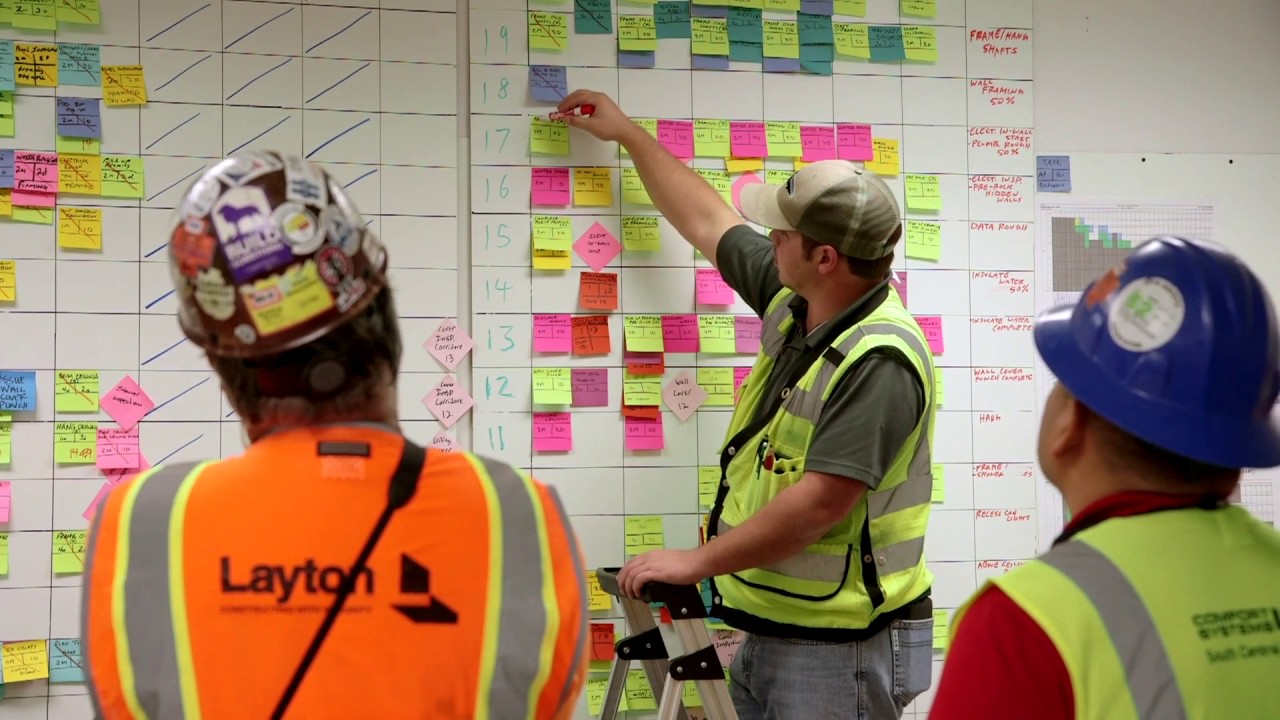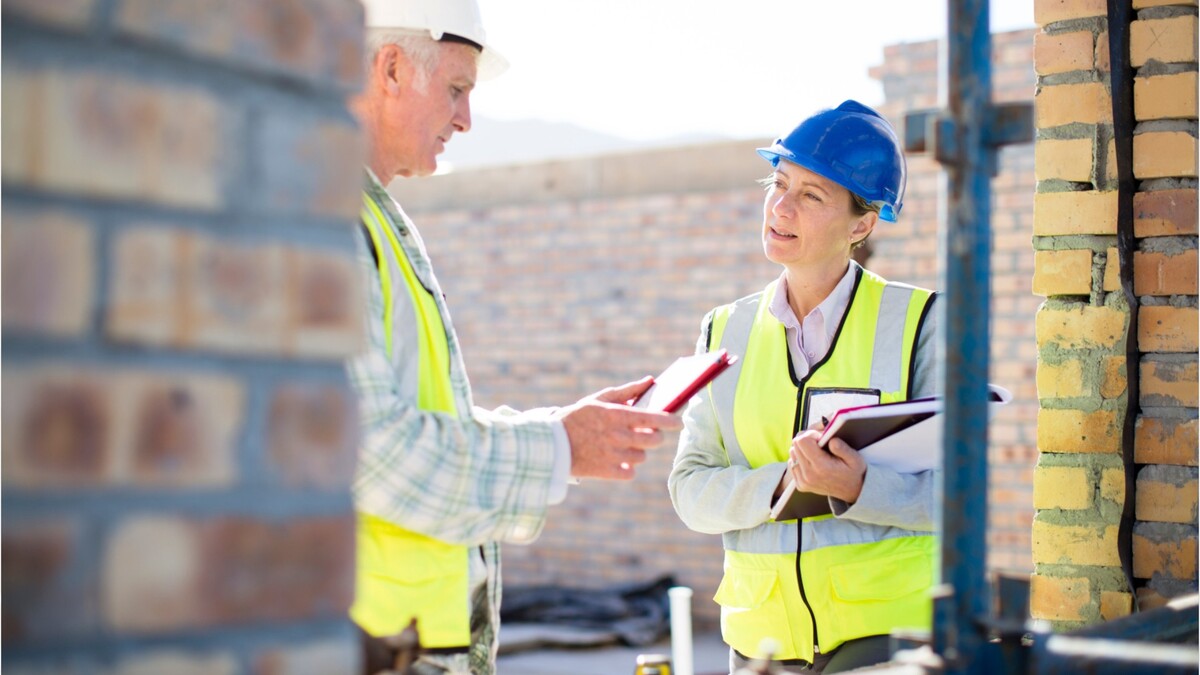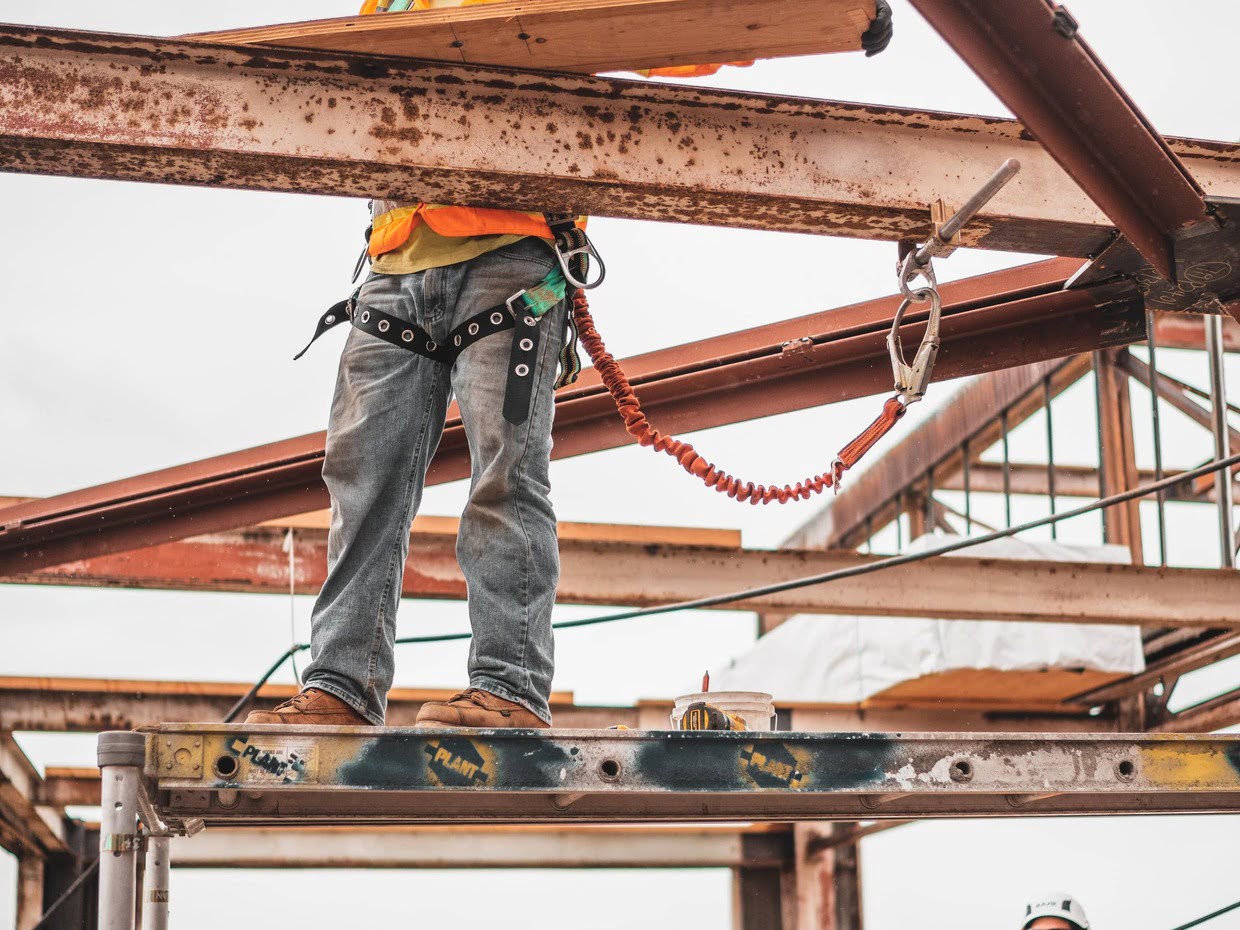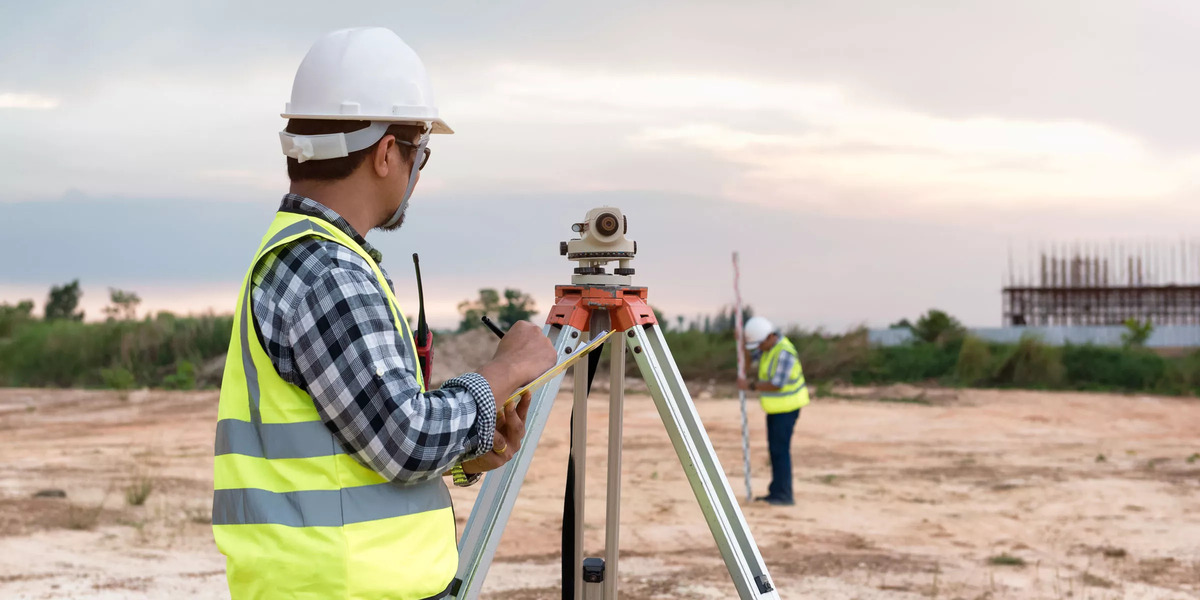Home>diy>Building & Construction>What Does A Construction Scheduler Do


Building & Construction
What Does A Construction Scheduler Do
Modified: December 7, 2023
A construction scheduler plays a vital role in overseeing the timely completion of building construction projects. Find out more about their responsibilities and qualifications.
(Many of the links in this article redirect to a specific reviewed product. Your purchase of these products through affiliate links helps to generate commission for Storables.com, at no extra cost. Learn more)
Introduction
Welcome to the world of construction scheduling! In the fast-paced and dynamic field of construction, effective project management is crucial to ensure successful completion of projects on time, within budget, and according to plan. One vital role in this process is that of a construction scheduler. But what exactly does a construction scheduler do?
A construction scheduler plays a key role in the planning and execution of construction projects. They are responsible for creating, analyzing, and adjusting project schedules, ensuring that all tasks and activities are properly sequenced and allocated the necessary resources and timeframes. By meticulously managing project schedules, construction schedulers help streamline operations, minimize delays, and optimize resource utilization.
In this article, we will explore the responsibilities and tasks performed by construction schedulers, diving into the intricacies of their role and understanding how their expertise helps to keep construction projects on track and moving forward smoothly.
Key Takeaways:
- Construction schedulers are essential for creating, monitoring, and adjusting project schedules to ensure timely and efficient completion of construction projects. Their expertise in problem-solving, communication, and collaboration keeps projects on track and stakeholders informed.
- Effective communication with stakeholders, proactive issue resolution, and data-driven decision-making are key skills of construction schedulers. They play a pivotal role in orchestrating the success of construction projects by maintaining transparency, engagement, and trust among all parties involved.
Definition of a Construction Scheduler
A construction scheduler is a highly skilled professional who specializes in creating, managing, and maintaining project schedules for construction projects. They are responsible for developing a detailed roadmap that outlines the sequence of tasks and activities required to complete a construction project within the specified timeline.
Construction schedulers possess a deep understanding of construction processes, methodologies, and project management principles. They work closely with project managers, architects, engineers, subcontractors, and other stakeholders to ensure that all parties are aligned and informed about the project schedule.
The construction scheduler’s primary objective is to develop realistic and achievable project schedules that consider various factors, such as available resources, labor availability, equipment requirements, and budget constraints. They must also consider external factors such as weather conditions, permits, and regulatory approvals that might impact the project timeline.
To create an accurate project schedule, construction schedulers employ specialized scheduling software and tools. These tools enable them to input project data, define task dependencies, allocate resources, and establish milestones. By leveraging these tools, construction schedulers can generate visual representations of the project schedule, such as Gantt charts or critical path method (CPM) diagrams, which provide a comprehensive overview of the project timeline.
Construction schedulers continuously monitor and update the project schedule throughout its lifecycle. They collaborate with the project team to gather progress updates, identify any schedule deviations, and make necessary adjustments to keep the project on track. They are also responsible for communicating schedule changes to stakeholders, ensuring that everyone is aware of any modifications and their impact on the construction project.
Overall, construction schedulers play a critical role in ensuring the successful and timely completion of construction projects. Through their expertise in scheduling and project management, they help streamline operations, optimize resource allocation, mitigate risks, and keep all project stakeholders informed and aligned.
Responsibilities of a Construction Scheduler
A construction scheduler is entrusted with a wide range of responsibilities to ensure that construction projects stay on schedule and progress efficiently. Let’s explore some of the key responsibilities of a construction scheduler:
- Developing project schedules: The construction scheduler is responsible for creating project schedules that outline the sequence of tasks, their durations, and dependencies. They must consider various factors such as resource availability, budget constraints, and project milestones.
- Allocating resources: Construction schedulers need to allocate the necessary resources, including labor, equipment, and materials, to different tasks in the project schedule. They must consider the availability and capacity of resources to ensure optimal resource utilization and avoid bottlenecks.
- Monitoring progress: Construction schedulers closely monitor the progress of tasks and activities throughout the project. They collect data from the project team, track actual versus planned progress, and identify any deviations from the schedule. This allows them to take corrective actions and keep the project on track.
- Analysing schedule data: Construction schedulers analyze schedule data to identify critical path activities, which are tasks with zero float and have the most impact on the project’s overall duration. By understanding the critical path, schedulers can prioritize resources and take measures to mitigate risks and prevent delays.
- Collaborating with stakeholders: Schedulers work closely with project managers, engineers, subcontractors, and other stakeholders to gather information and align schedules. They engage in regular communication to ensure that everyone is aware of the project schedule and any changes or updates.
- Adjusting schedules: Construction schedulers monitor the progress of the project and make necessary adjustments to the schedule. This includes updating task durations, modifying dependencies, and reallocating resources to account for changes in scope, unforeseen delays, or resource constraints.
- Resolving scheduling conflicts: Construction schedulers play a critical role in resolving scheduling conflicts that may arise during the course of the project. They identify conflicts, evaluate potential solutions, and collaborate with stakeholders to find the best resolution that minimizes the impact on the project schedule.
- Communicating schedule changes: Schedulers keep all project stakeholders informed about any changes to the project schedule. This includes communicating schedule updates, informing about delays or changes in milestones, and ensuring that everyone is aware of the impact on the project’s timeline.
Overall, the responsibilities of a construction scheduler revolve around creating, managing, and adjusting project schedules to ensure successful project execution. Their ability to analyze data, collaborate with stakeholders, and make informed decisions is instrumental in keeping construction projects on track and delivering them within the specified timeframe.
Creating Project Schedules
Creating project schedules is a core responsibility of a construction scheduler. This task involves developing a detailed roadmap that outlines the sequence of tasks and activities required to complete a construction project within a specific timeframe. Let’s delve into the process of creating project schedules:
1. Scope identification: The first step in creating a project schedule is to clearly define the project scope. This involves understanding the project’s objectives, deliverables, and requirements. By gaining a thorough understanding of the project scope, the construction scheduler can ensure that all necessary tasks are included in the schedule.
2. Task identification and sequencing: The construction scheduler works closely with the project team to identify all the tasks and activities required to complete the project. Each task is carefully sequenced based on its dependencies, meaning that certain tasks must be completed before others can begin. This sequencing ensures that the project progresses in a logical and efficient manner.
3. Estimating task durations: Construction schedulers collaborate with subject matter experts to estimate the durations of each task. These estimates are based on historical data, industry standards, and the expertise of the project team. Accurate task duration estimates are crucial for developing a realistic and achievable project schedule.
4. Allocating resources: Once the tasks and durations are identified, the construction scheduler allocates the necessary resources to each task. This includes assigning labor, equipment, materials, and any other resources required for the successful completion of the task. Proper resource allocation helps prevent resource constraints and ensures smooth project execution.
5. Milestone identification: Construction schedulers establish milestones within the project schedule to mark significant achievements or events. Milestones serve as important checkpoints for the project team and stakeholders, providing a clear indication of progress and key project deliverables.
6. Developing the schedule: Using specialized scheduling software and tools, the construction scheduler inputs the task information, durations, dependencies, and resource allocation to create the project schedule. The software generates a visual representation of the schedule, such as a Gantt chart, which provides a comprehensive overview of the project timeline.
7. Review and refinement: Before finalizing the project schedule, the construction scheduler reviews it with the project team and stakeholders. This allows for input, feedback, and adjustments to ensure accuracy and feasibility. The schedule may undergo several revisions and refinements based on the input received.
8. Documentation and distribution: Once the project schedule is finalized, the construction scheduler documents the schedule and distributes it to all relevant stakeholders. It is crucial that all parties involved in the construction project have access to the schedule and are aware of their responsibilities and timelines.
Creating project schedules is a crucial step in construction project management. Properly designed and maintained schedules provide a roadmap for successful project execution, ensuring that tasks are completed in a timely and efficient manner, resources are optimized, and all project stakeholders are aligned and informed.
Analyzing Project Data
In the field of construction scheduling, analyzing project data is a critical task that allows construction schedulers to gain insights into the progress and performance of a project. By analyzing project data, construction schedulers can identify areas of improvement, anticipate potential risks, and make informed decisions to keep the project on track. Let’s explore the process of analyzing project data:
1. Data collection: Construction schedulers collect data from various sources throughout the project lifecycle. This includes progress updates from the project team, material delivery records, equipment usage logs, and any other relevant data points. The accuracy and completeness of the data are crucial for meaningful analysis.
2. Data validation: Before proceeding with the analysis, construction schedulers validate the collected data to ensure its reliability and accuracy. This may involve cross-referencing information, verifying against project documentation, and addressing any inconsistencies or discrepancies that may arise.
3. Progress tracking: Construction schedulers track the progress of tasks and activities against the planned schedule. They compare the actual completion dates and durations of tasks with the scheduled dates to identify any deviations. This helps to pinpoint areas where the project is behind schedule or where tasks are taking longer than anticipated.
4. Performance analysis: Construction schedulers analyze the performance of the project by examining key performance indicators (KPIs). These KPIs may include milestones achieved, percentage of work completed, resource utilization rates, and any other relevant metrics. By evaluating project performance, the scheduler can identify trends, potential bottlenecks, and areas of improvement.
5. Critical path analysis: One of the most important aspects of analyzing project data is performing a critical path analysis. The critical path is the sequence of tasks that determines the overall duration of the project. Construction schedulers identify the critical path activities and evaluate their impact on the project timeline. This allows them to prioritize resources and take proactive measures to mitigate risks and prevent delays.
6. Risk assessment: Analyzing project data helps construction schedulers assess project risks and identify potential issues that may impact the schedule. By analyzing historical data, they can identify recurring risks or areas of uncertainty and develop strategies to mitigate these risks. This ensures that potential problems are addressed proactively to minimize their impact on the project.
7. Forecasting and scenario planning: Based on the analysis of project data, construction schedulers can forecast future project performance. By considering different scenarios and potential contingencies, they can develop alternative schedules or plans to mitigate risks and ensure the project’s successful completion.
8. Reporting and communication: After analyzing project data, construction schedulers prepare reports and communicate findings to the project team and stakeholders. These reports highlight important insights, areas of concern, and proposed actions to address any schedule deviations or risks to the project timeline.
Analyzing project data is a crucial aspect of construction scheduling. Through data analysis, construction schedulers gain valuable insights into project performance, identify risks and opportunities, and make data-driven decisions to ensure the successful completion of construction projects.
A construction scheduler is responsible for creating and managing project schedules, coordinating with various teams, and ensuring that projects are completed on time. They also play a key role in identifying potential delays and finding solutions to keep the project on track.
Read more: How To Make A Construction Schedule
Collaborating with Project Team
Collaboration is key to the success of any construction project, and construction schedulers play a vital role in fostering effective collaboration within the project team. By working closely with team members, construction schedulers ensure that everyone is aligned, informed, and working towards the common goal of completing the project on time and within budget. Let’s explore the importance of collaborating with the project team:
1. Establishing clear communication channels: Construction schedulers establish clear and open communication channels with the project team. This includes regular meetings, clear communication of expectations, and providing avenues for team members to share updates, concerns, and ideas related to the project schedule.
2. Gathering input and information: Construction schedulers collaborate with the project team to gather input and information about various aspects of the project. This includes understanding the scope, identifying dependencies, and collecting data on tasks and resources. By involving the team in these discussions, the scheduler gains valuable insights that contribute to creating a realistic and accurate project schedule.
3. Sharing the project schedule: Construction schedulers share the project schedule with the project team to ensure everyone is aware of their responsibilities and timelines. By involving team members in the schedule planning process, they can address any concerns or conflicts early on, ensuring a smooth and coordinated workflow.
4. Seeking input on schedule feasibility: Construction schedulers collaborate with team members to assess the feasibility of the project schedule. They seek input on resource availability, potential conflicts, and any external factors that may impact the schedule. By involving the team in this assessment, schedulers can make necessary adjustments and ensure a realistic project timeline.
5. Addressing conflicts and issues: Construction schedulers work closely with the project team to address any conflicts or issues that may arise during the project. By fostering an open and collaborative environment, schedulers can facilitate discussions and find solutions that minimize the impact on the project schedule and ensure a harmonious working environment.
6. Providing regular progress updates: Construction schedulers collaborate with team members to gather progress updates on tasks and activities. These updates enable them to track the progress against the schedule, identify any deviations, and make informed decisions on adjustments and resource re-allocations. By regularly communicating progress updates, the scheduler keeps the team informed and engaged in the project’s overall progress.
7. Encouraging feedback and continuous improvement: Construction schedulers encourage feedback from team members on the project schedule and overall scheduling process. By providing a platform for team members to share their insights and suggestions, schedulers can improve future scheduling practices, enhance efficiency, and prevent schedule-related issues in future projects.
8. Collaborating on schedule adjustments: Throughout the project lifecycle, construction schedulers collaborate with the project team to make necessary schedule adjustments. This may involve re-sequencing tasks, reallocating resources, or revising milestones. By involving the team in these adjustments, the scheduler ensures that changes do not disrupt the overall project plan and maintains the team’s commitment to meeting project goals.
Collaborating with the project team is essential for construction schedulers to effectively manage and maintain project schedules. By fostering open communication, involving team members in the scheduling process, and addressing any conflicts or concerns, construction schedulers create a collaborative environment where everyone is working together towards a successful project completion.
Monitoring and Adjusting Schedules
Monitoring and adjusting schedules is a crucial aspect of a construction scheduler’s role. It involves continuously tracking the progress of tasks, identifying any deviations from the planned schedule, and making necessary adjustments to keep the project on track. Let’s explore the process of monitoring and adjusting schedules:
1. Regular progress monitoring: Construction schedulers regularly monitor the progress of tasks and activities against the planned schedule. They collect updates from the project team, ensuring that tasks are being completed on time and within the allocated resources. This allows schedulers to track the overall progress of the project and identify any potential delays or issues.
2. Comparing actual vs. planned progress: Schedulers compare the actual completion dates and durations of tasks with the scheduled dates to determine if the project is on track or behind schedule. This analysis helps to identify any deviations and understand the impact on the overall project timeline. It enables schedulers to assess the effectiveness of the initial schedule and make adjustments as necessary.
3. Evaluating critical path activities: Construction schedulers analyze the critical path, which consists of activities with zero float and directly impact the project’s overall duration. By identifying the critical path activities, schedulers focus their attention on ensuring that these tasks are completed on time and any delays are minimized. This analysis allows them to prioritize resources and take proactive measures to keep the project on track.
4. Identifying schedule deviations: Schedulers identify any schedule deviations, which refer to tasks or activities that are not progressing as planned or are experiencing delays. By carefully monitoring the progress, comparing it against the schedule, and analyzing the critical path, schedulers can quickly identify deviations. Early recognition of these deviations allows for timely action to address and resolve them.
5. Determining the root causes of delays: When schedule deviations occur, construction schedulers work closely with the project team to determine the root causes of the delays. This could include factors such as resource constraints, changes in scope, external factors like weather conditions, or technical issues. By understanding the underlying causes, schedulers can develop strategies to address these issues and prevent further delays.
6. Adjusting the project schedule: Once schedule deviations and their causes have been identified, construction schedulers make necessary adjustments to the project schedule. This may involve modifying task durations, dependencies, or resource allocation. The adjustments are made to accommodate any changes in the project scope, address delays, or optimize resource utilization.
7. Adhering to project constraints: While making schedule adjustments, construction schedulers need to consider various project constraints, such as available resources, budget limitations, and regulatory requirements. They must ensure that any changes made to the schedule align with these constraints and do not compromise the overall project objectives or quality.
8. Communicating schedule changes: Construction schedulers effectively communicate any schedule changes to the project team and stakeholders. This ensures that everyone is aware of the adjustments, understands the reasons behind them, and is prepared for any impact on their tasks or responsibilities. Clear communication helps maintain transparency and keeps all parties informed and aligned.
Monitoring and adjusting schedules is a continuous process throughout the project lifecycle. By closely tracking progress, identifying deviations, and making necessary adjustments, construction schedulers help maintain a realistic and achievable project schedule, minimize delays, and ensure successful project completion.
Resolving Issues and Delays
In the dynamic field of construction, issues and delays are inevitable. Construction schedulers play a crucial role in identifying and resolving these issues to minimize the impact on the project schedule and ensure timely completion. Let’s explore how construction schedulers handle and resolve issues and delays:
1. Proactive issue identification: Construction schedulers actively monitor the project progress to identify potential issues that could cause delays. They continuously analyze data, track task completion, and communicate with the project team to stay informed about any emerging concerns.
2. Root cause analysis: When issues or delays occur, construction schedulers work closely with the project team to conduct a root cause analysis. They investigate the underlying factors that cause the problem, taking into account various aspects such as resource constraints, technical difficulties, coordination issues, or changes in project requirements.
3. Developing action plans: Based on the root cause analysis, construction schedulers collaborate with key stakeholders to develop action plans to address the identified issues and minimize the impact on the project schedule. These action plans may involve reallocating resources, adjusting task dependencies, revising the project schedule, or implementing mitigation strategies.
4. Prioritizing critical activities: Construction schedulers prioritize critical path activities, which have the most significant impact on the project’s overall duration. By focusing resources and attention on these critical activities, schedulers ensure that delays in these areas are minimized, and the project stays on track.
5. Resource reallocation: When issues or delays arise, construction schedulers may need to reassign resources to address critical areas or alleviate constraints. They collaborate with the project team to identify available resources and make strategic decisions on the allocation of labor, equipment, and materials to ensure that critical activities receive the necessary support.
6. Implementing contingency plans: In some cases, construction schedulers develop and implement contingency plans to mitigate the impact of issues or delays. These plans outline alternative approaches or strategies that can be activated in response to specific challenges. Contingency plans help to minimize disruptions and minimize the impact on the project timeline.
7. Collaborating with stakeholders: Construction schedulers maintain open communication and collaboration with various stakeholders, including the project team, clients, subcontractors, and suppliers. They keep all parties informed about issues and delays, seek input and feedback, and work together to develop and implement solutions that are in the best interest of the project.
8. Monitoring and adjusting: Throughout the resolution process, construction schedulers continuously monitor the effectiveness of the implemented solutions. They track the progress of issue resolution, assess its impact on the project schedule, and make adjustments as necessary to ensure that the project remains on track despite any setbacks.
Resolving issues and delays in construction projects requires proactive problem-solving, effective communication, and collaboration among the project team. Construction schedulers play a pivotal role in coordinating these efforts, identifying solutions, and implementing strategic measures to overcome challenges and ensure successful project completion.
Communicating with Stakeholders
Effective communication is vital in any construction project, and construction schedulers serve as key communicators between the project team and stakeholders. They play a crucial role in ensuring that all stakeholders are informed, engaged, and aligned with the project schedule and progress. Let’s explore the importance of communicating with stakeholders in construction project scheduling:
1. Stakeholder identification: Construction schedulers work closely with project managers to identify all relevant stakeholders involved in the construction project. This includes clients, architects, engineers, subcontractors, regulatory authorities, and any other parties with a vested interest in the project. Identifying stakeholders is essential to determine the appropriate communication channels and methods.
2. Establishing communication plans: Construction schedulers develop communication plans that outline how and when stakeholders will be informed about the project schedule and progress. These plans consider the preferences and requirements of different stakeholders, ensuring that the communication is effective and tailored to the needs of each stakeholder group.
3. Schedule updates: Construction schedulers provide regular schedule updates to stakeholders, keeping them informed about the progress of the project. This includes sharing information about completed milestones, upcoming tasks, and any changes or adjustments made to the project schedule. Regular updates help stakeholders to have a clear understanding of the project’s status and anticipated timelines.
4. Managing expectations: Construction schedulers play a vital role in managing stakeholder expectations regarding the project schedule. They communicate realistic timelines based on the progress and resource availability, ensuring that stakeholders have a clear understanding of what can be achieved within the given constraints. This helps to minimize misunderstanding or dissatisfaction due to unrealistic expectations.
5. Addressing stakeholder concerns: Construction schedulers listen to stakeholder concerns, questions, or feedback regarding the project schedule. They actively engage in dialogue, address any queries or issues raised, and provide clarification or additional information as needed. By addressing stakeholder concerns promptly and transparently, schedulers establish trust and maintain positive relationships.
6. Handling schedule-related disputes: In cases where stakeholders have conflicting expectations or disputes arise related to the project schedule, construction schedulers serve as mediators. They facilitate discussions, clarify misunderstandings, and work towards finding mutually acceptable solutions. Effective communication and negotiation skills are vital in resolving these disputes amicably.
7. Reporting key milestones: Construction schedulers report key project milestones to stakeholders. Milestones represent important achievements or deliverables within the project timeline. Reporting milestones allows stakeholders to recognize progress and reassures them that the project is progressing as planned.
8. Adapting communication styles: Construction schedulers understand that different stakeholders may have varying levels of technical knowledge or preferences for communication. They adapt their communication styles and methods to suit the specific needs of each stakeholder. This ensures that information is effectively conveyed and understood by all parties involved.
Effective communication with stakeholders is critical to the success of construction projects. Construction schedulers actively engage with stakeholders, ensure their understanding and alignment with the project schedule, address concerns promptly, and maintain an open and transparent channel of communication throughout the project lifecycle. By fostering positive engagement and collaboration, construction schedulers contribute to successful project execution and stakeholder satisfaction.
Read more: What Does A Flagger Do In Construction
Conclusion
In the world of construction, where time is of the essence and efficient project management is crucial, construction schedulers play a vital role in ensuring projects stay on track and meet their objectives. By creating, monitoring, and adjusting project schedules, they help organize the complex web of tasks and activities, allocate resources effectively, and minimize delays and disruptions.
A construction scheduler’s responsibilities encompass various critical tasks, such as creating project schedules, analyzing project data, collaborating with the project team, resolving issues and delays, and communicating with stakeholders. These tasks require a combination of technical expertise, analytical skills, communication prowess, and attention to detail.
Construction schedulers leverage their deep understanding of construction processes and project management principles to develop comprehensive project schedules. They consider factors such as available resources, budget constraints, and external factors while ensuring realistic timelines and milestones. They collaborate with the project team, gathering input and information, and maintain effective communication channels throughout the project’s lifecycle.
In the face of challenges and unforeseen circumstances, construction schedulers demonstrate their problem-solving skills by identifying and resolving issues and delays proactively. They conduct root cause analysis, develop action plans, adjust schedules, and engage stakeholders to ensure a smooth and successful project execution.
Furthermore, construction schedulers understand the importance of effective communication with stakeholders. By providing regular updates, managing expectations, addressing concerns and disputes, and adapting their communication styles, they facilitate transparency, engagement, and trust among all parties involved in the construction project.
In conclusion, construction schedulers play a critical role in orchestrating the timely and efficient completion of construction projects. Their expertise in creating, monitoring, and adjusting project schedules, along with their ability to collaborate with the project team and effectively communicate with stakeholders, ensures that construction projects stay on track, resources are optimized, and stakeholders are kept informed and engaged. With their skills and knowledge, construction schedulers contribute to the overall success and positive outcomes of construction projects, bringing structure and organization to the dynamic world of construction.
Frequently Asked Questions about What Does A Construction Scheduler Do
Was this page helpful?
At Storables.com, we guarantee accurate and reliable information. Our content, validated by Expert Board Contributors, is crafted following stringent Editorial Policies. We're committed to providing you with well-researched, expert-backed insights for all your informational needs.














0 thoughts on “What Does A Construction Scheduler Do”